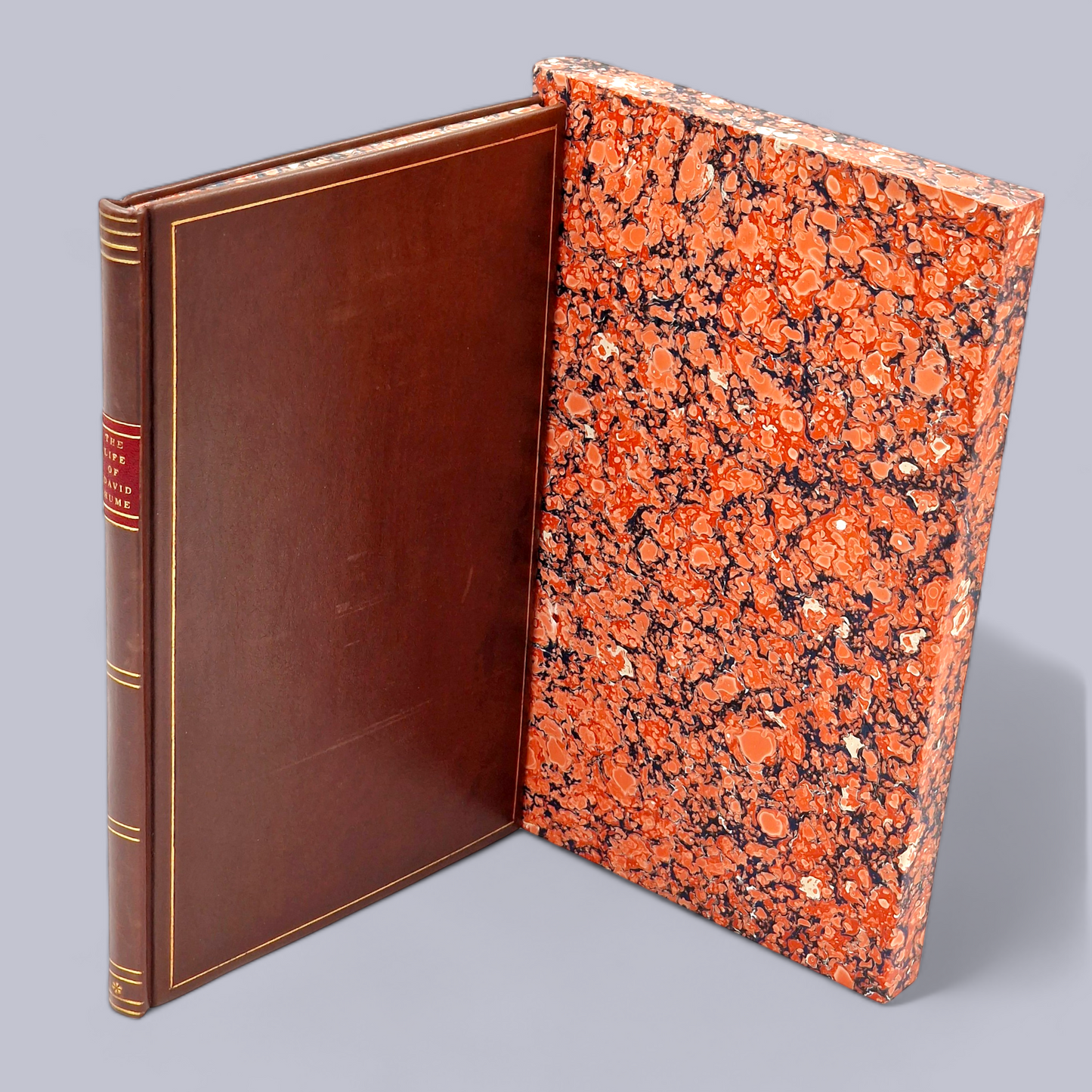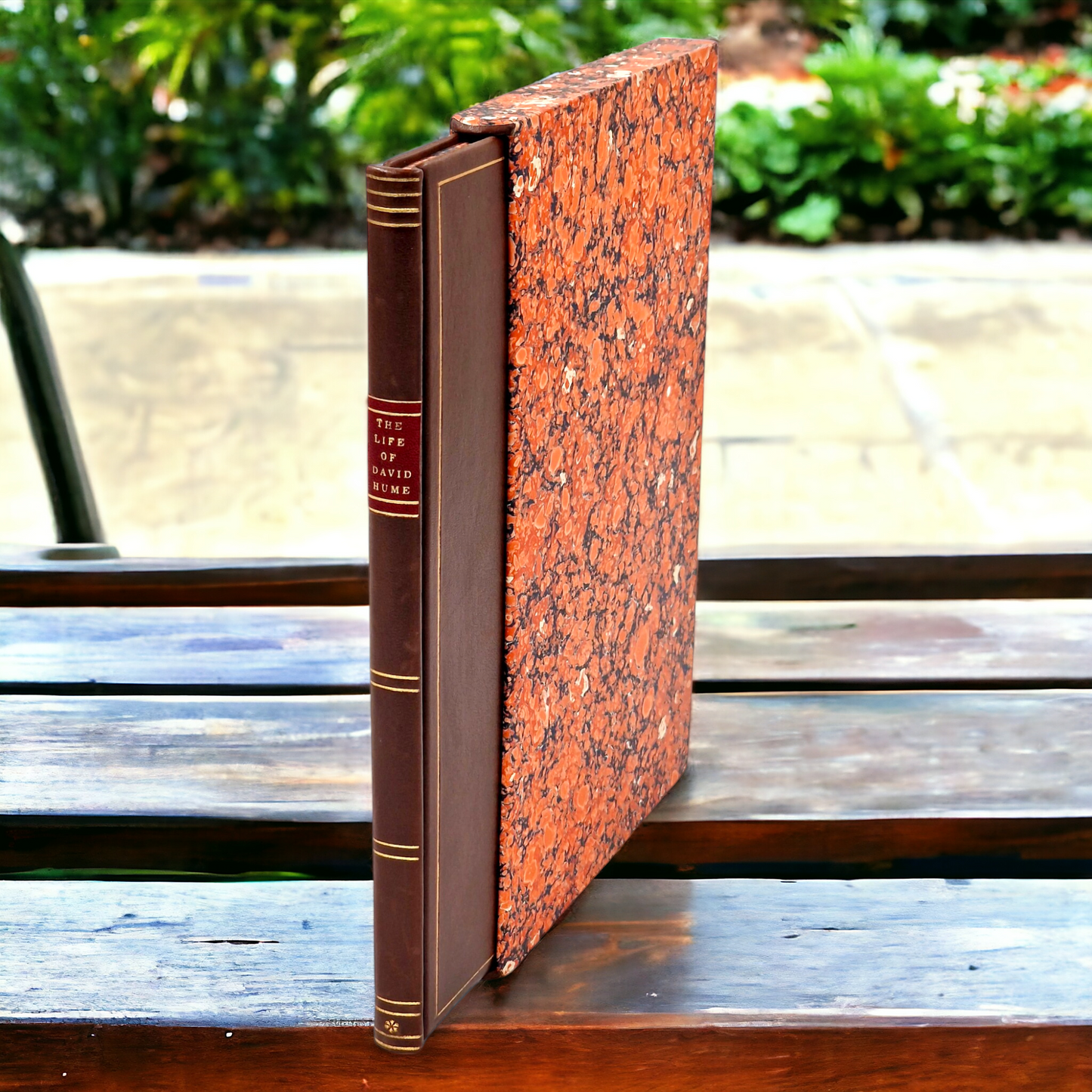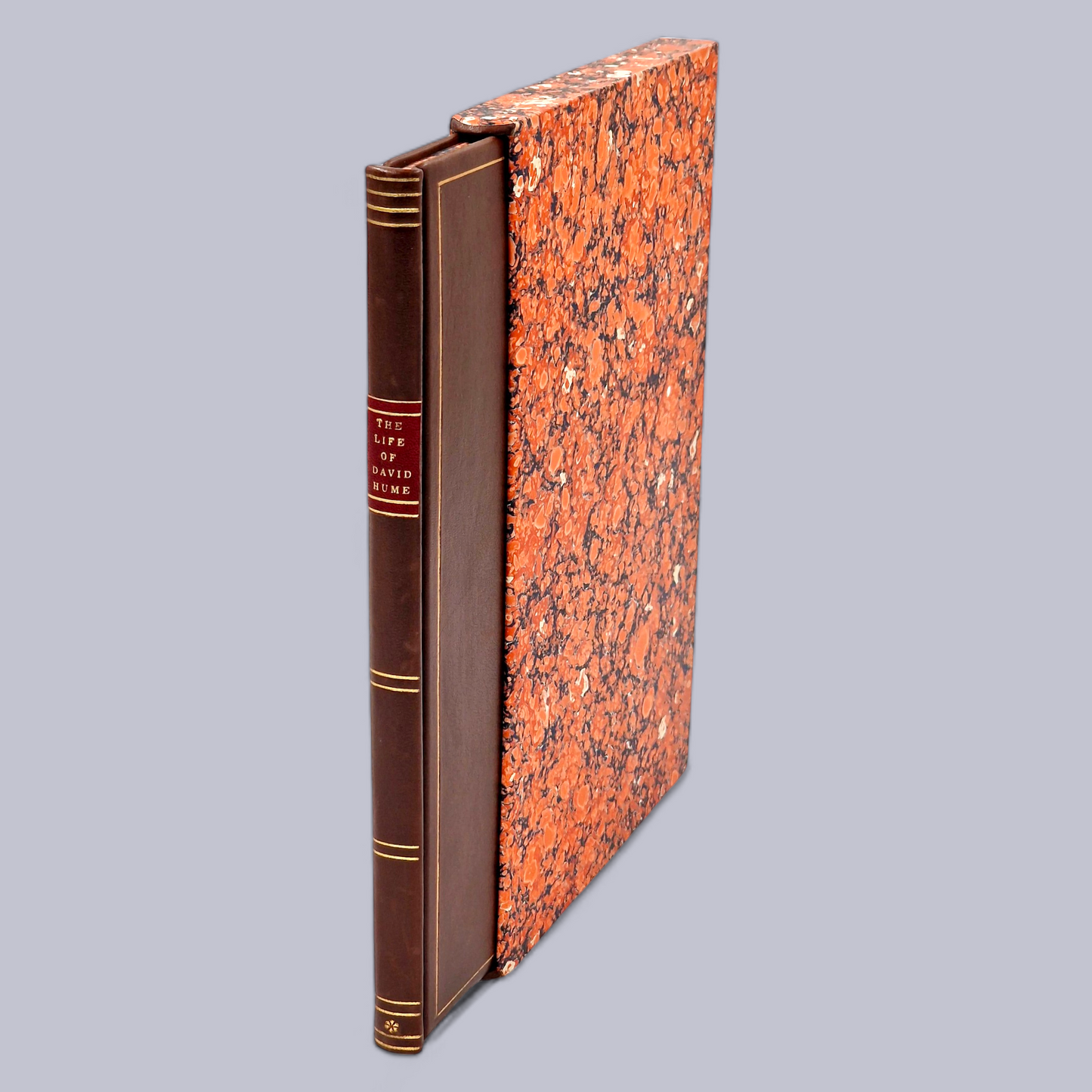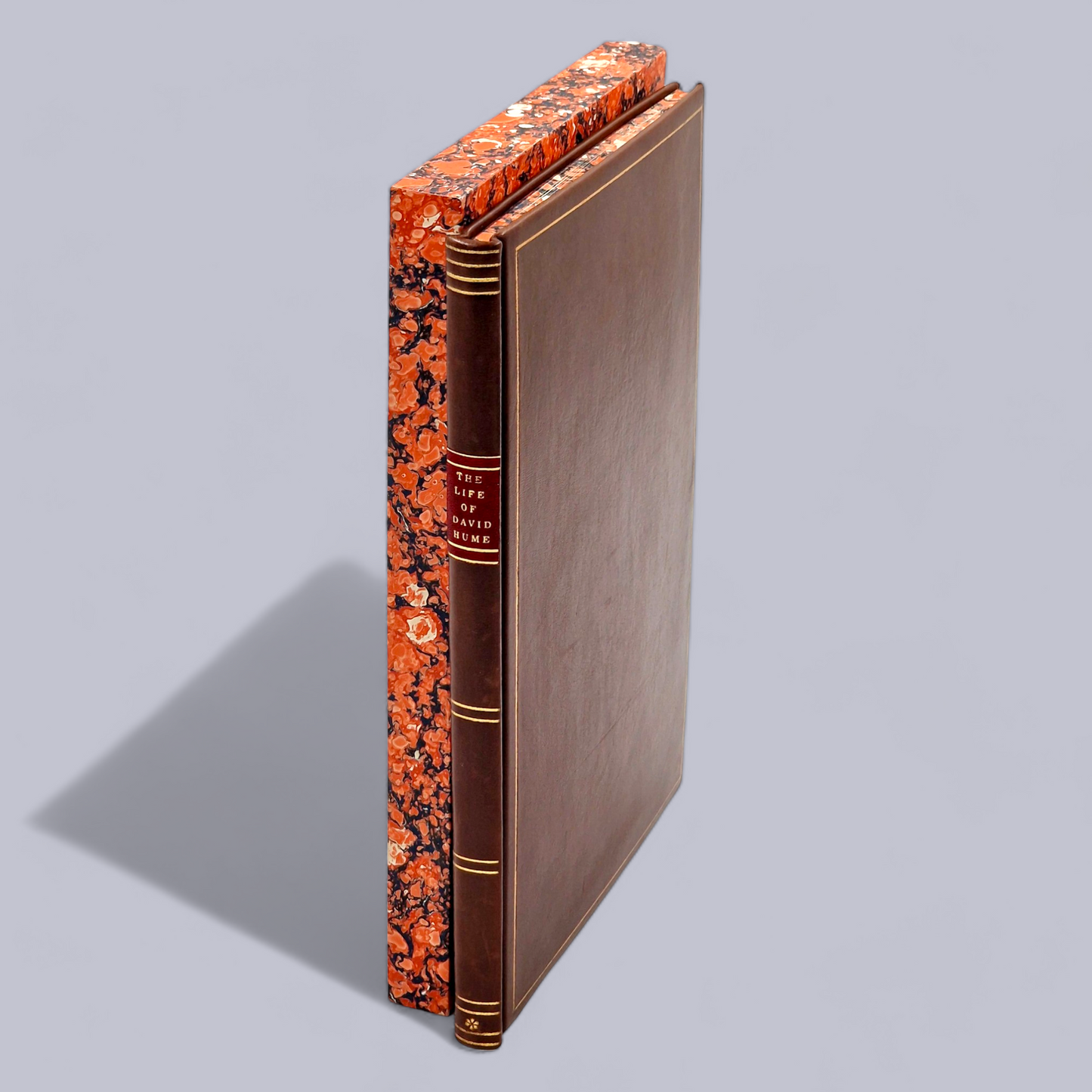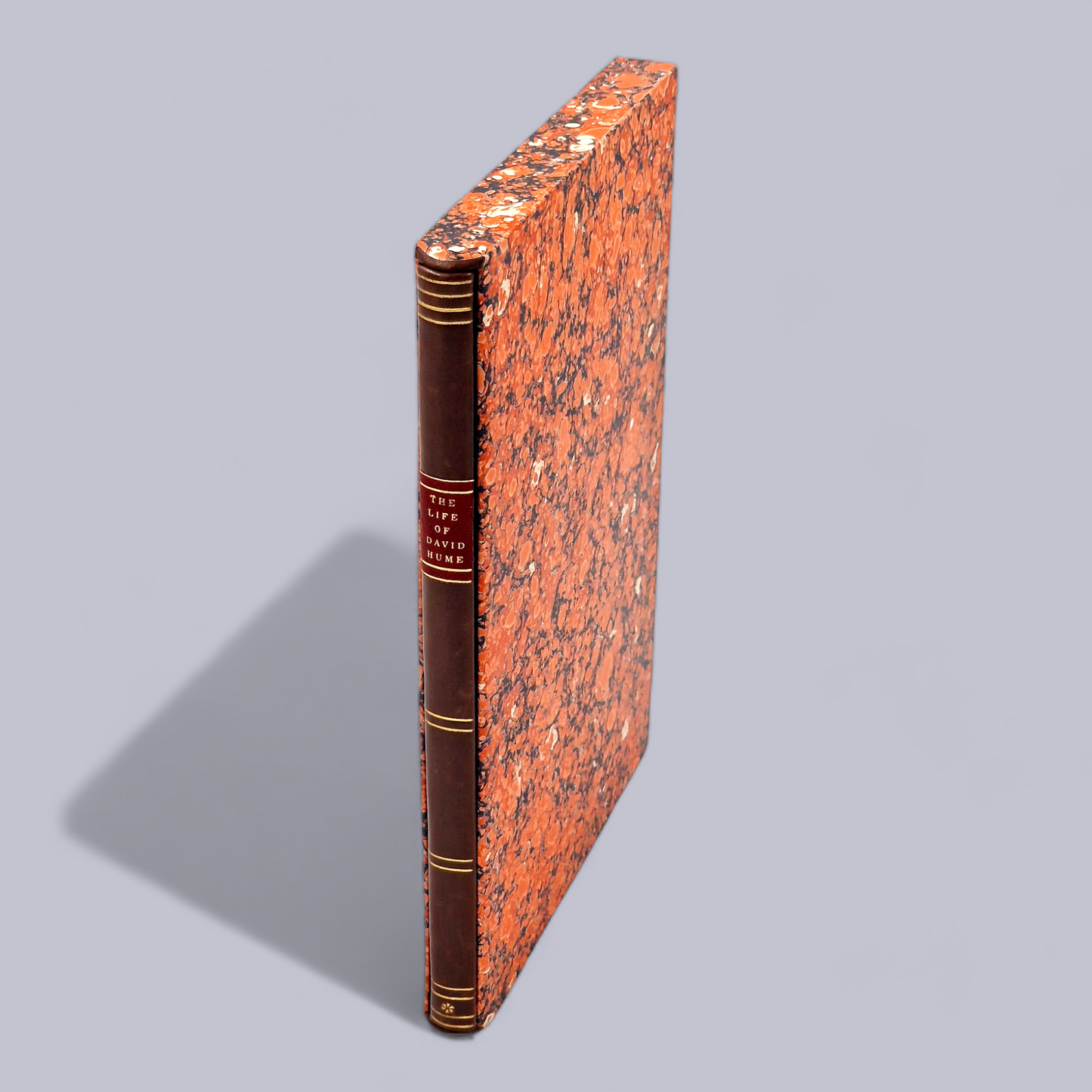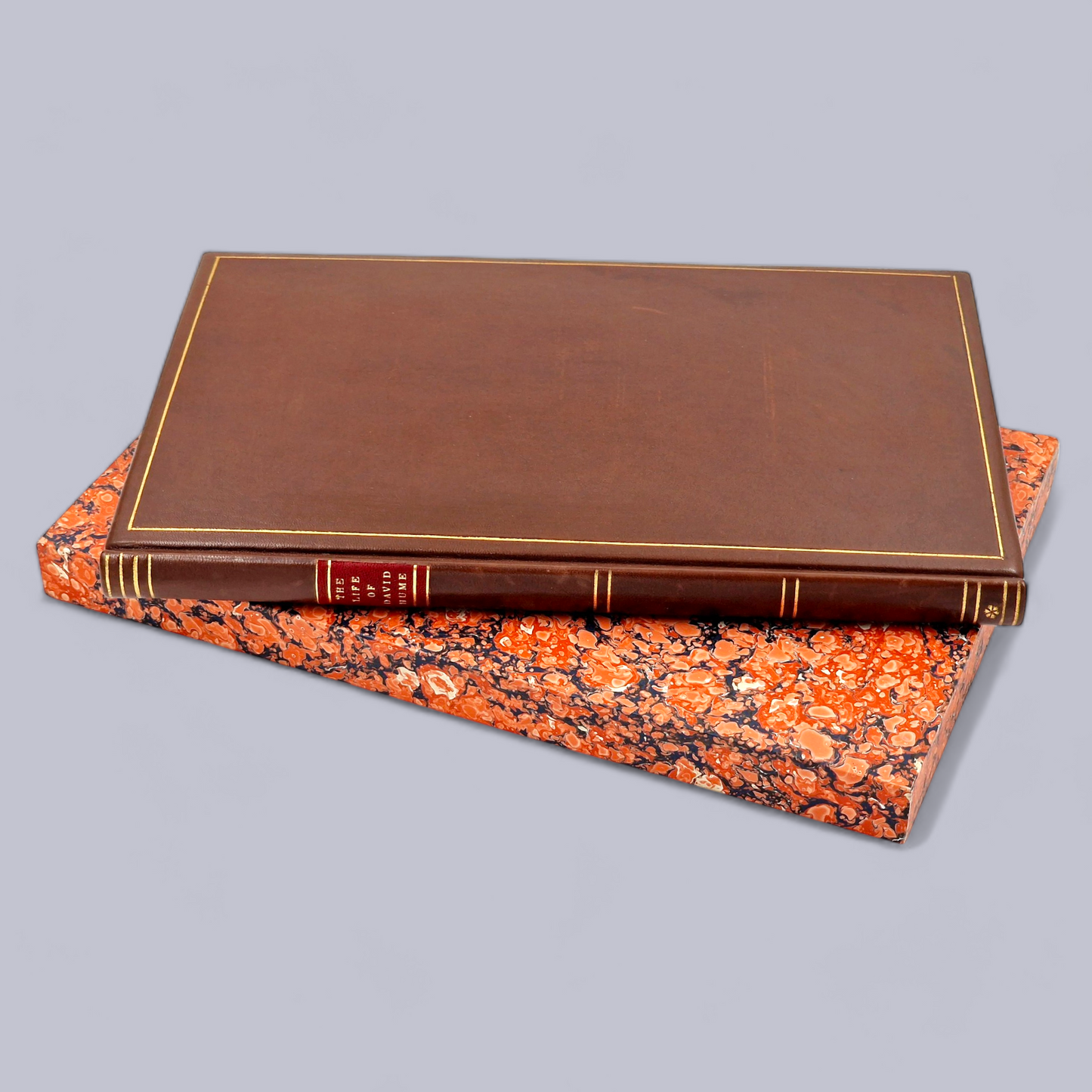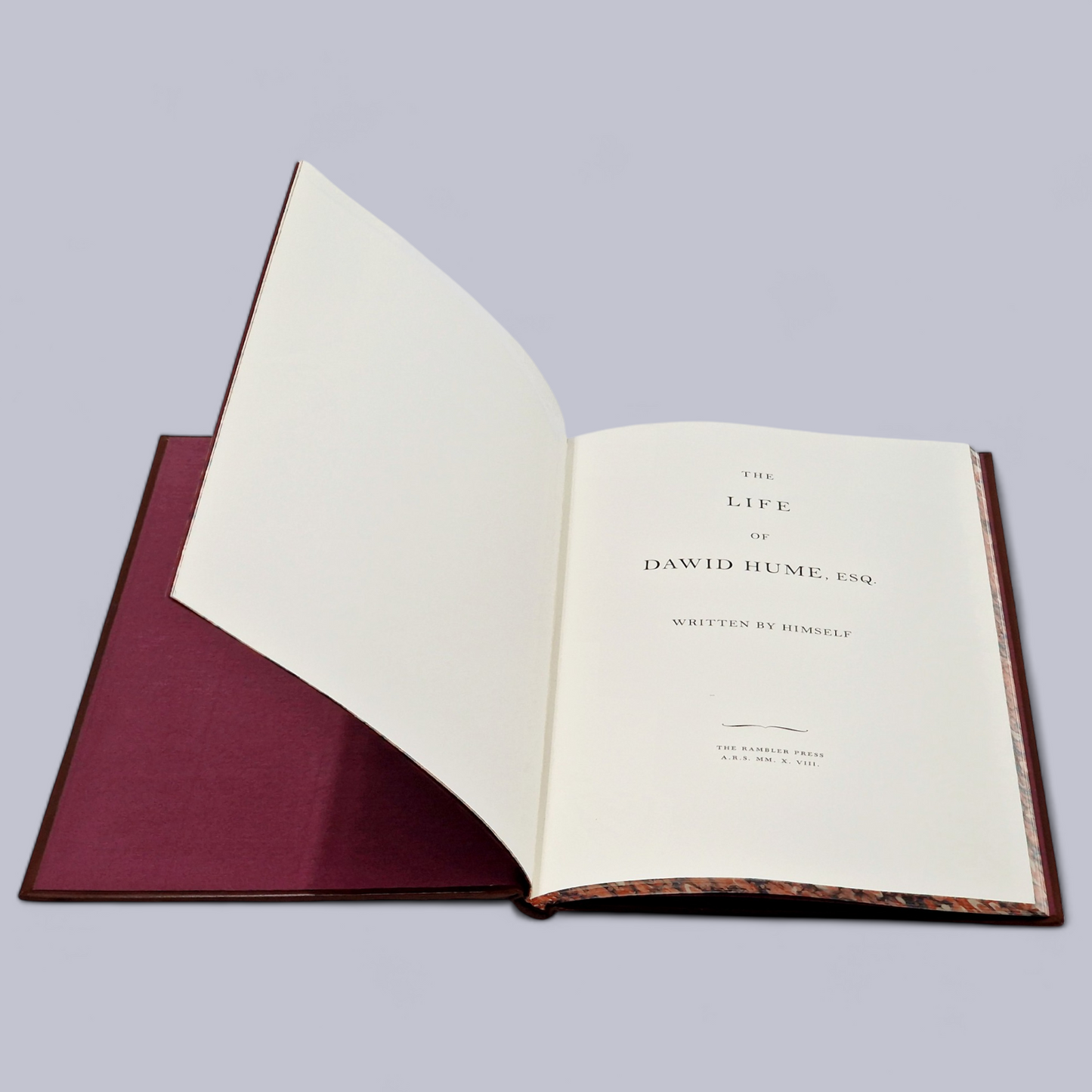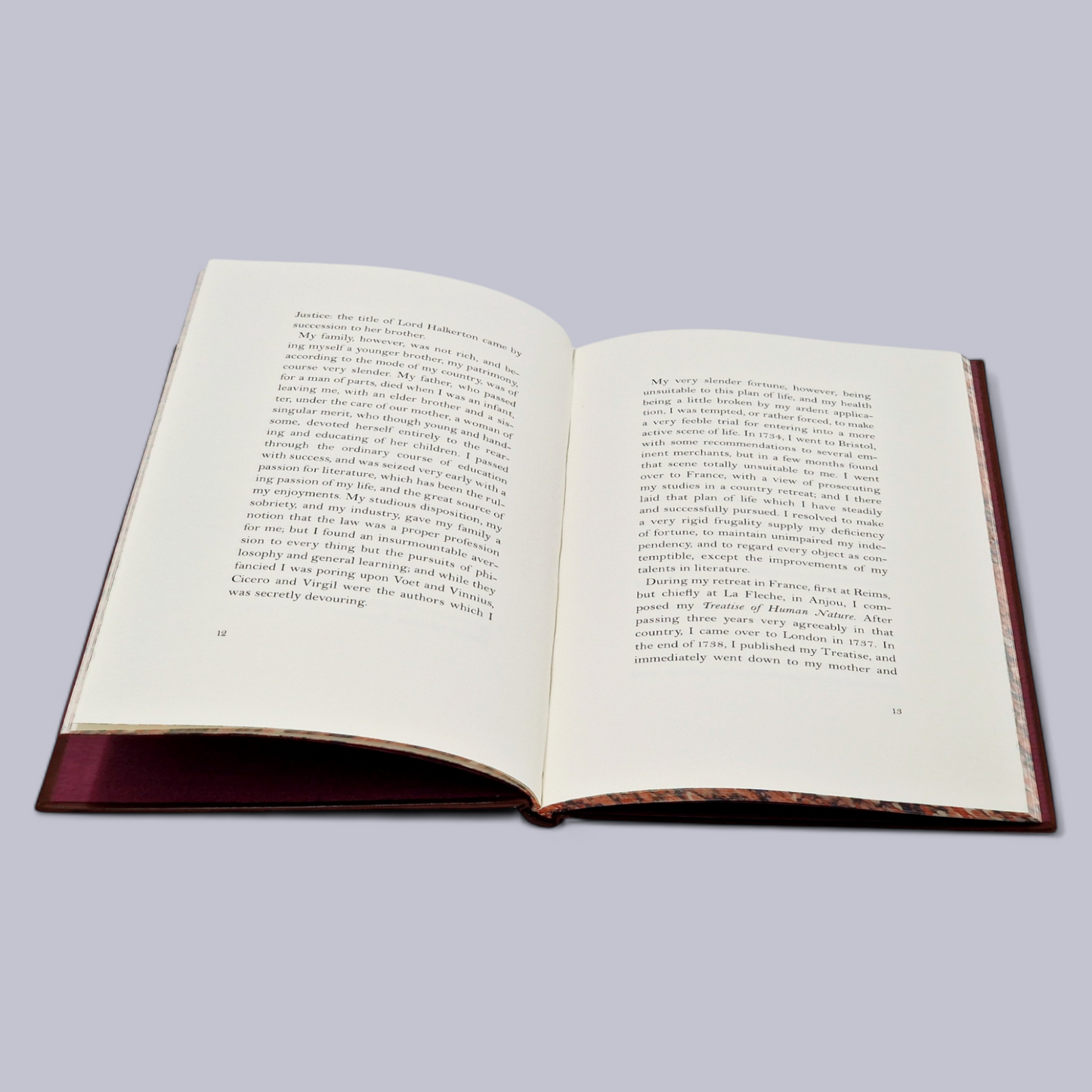SKU:
David Hume, Adam Smith
The Life of David Hume, Esq. Written by Himself
The Life of David Hume, Esq. Written by Himself
Couldn't load pickup availability
A Short Autobiography from a Major Enlightenment Thinker
Among the many philosophical writings of the 18th century, The Life of David Hume, Esq. Written by Himself holds a distinctive place. Composed in the spring of 1776, just a few months before his death, this brief text offers a rare first-person account from one of the Enlightenment’s most influential thinkers.
Hume’s autobiography is notable for its clarity and brevity. Without dramatization or embellishment, it presents a quiet summary of a life shaped by intellectual pursuit, literary ambition, and unwavering self-awareness. While it spans just a few pages, it offers a clear view into the philosopher’s mind and the way he understood his place in the world.
Written with Characteristic Clarity and Restraint
David Hume begins by acknowledging the common risks of vanity in autobiographical writing. In response, he sets out to be brief and factual — and he succeeds. The Life of David Hume is remarkably concise. Yet within that economy of words, it covers a great deal: his upbringing in Scotland, early education, first philosophical writings, time spent in France, and later diplomatic service.
Hume reflects on the lukewarm reception of his early work, such as A Treatise of Human Nature, and how recognition only came with time. There is no resentment or self-praise. He simply notes what happened and moves on. The tone remains measured and neutral throughout.
Facing Mortality Without Sentiment
One of the most striking sections of the autobiography deals with Hume’s final illness. He describes his declining health in direct, unadorned terms. There is no sense of fear or regret — only an acceptance of nature’s course. This aspect of the text has generated various interpretations over the years. For some readers, it reflects composure and philosophical consistency. For others, it suggests emotional detachment.
Yet contemporary accounts, such as that of Hume’s close friend Adam Smith, confirm that the philosopher approached death in much the same way he approached life: rationally, without illusions, and without drama.
A Readable and Timeless Work
The language of The Life of David Hume is plain but thoughtful. There is no rhetorical flair, no dramatic arc. This makes it unusually accessible, even to readers unfamiliar with Hume’s philosophy. It can be read in under an hour, yet it leaves a lasting impression due to the precision of thought and understated tone.
For modern readers, part of the appeal lies in this calm style. Hume does not moralize. He does not offer conclusions about life’s meaning. Instead, he gives an account of what happened to him and leaves interpretation open.
A Document of Enduring Value
While short, this autobiography continues to be referenced in discussions of Enlightenment thinking, 18th-century intellectual culture, and even the art of self-narration. Many historians and philosophers have praised the text not for its revelations but for its tone: reflective, balanced, and modest.
The value of The Life of David Hume lies not in its emotional resonance but in its authenticity. It reflects a philosopher who remained consistent in his outlook from youth to old age. The lack of embellishment becomes its own form of integrity.
Why This Text Still Matters
Whether you’re a reader of Enlightenment philosophy, a historian, or simply someone drawn to reflective writing, The Life of David Hume remains worth your attention. It is an example of how a life can be recounted without artifice — and how clarity of expression can outlast more elaborate attempts at self-description.
Even now, centuries later, Hume’s short autobiography feels relevant. It avoids the temptation to dramatize or philosophize too much. It offers facts, reflections, and a composed tone that still resonates with readers looking for a different kind of life story — one that favors thoughtfulness over performance.
PRODUCT DESCRIPTION
This edition of The Life of David Hume, Esq. Written by Himself is based on the original 1777 first edition, faithfully preserving its language and even the minor typographical errors of the original printing.
Limited to just 25 copies, this book is printed on high-quality Fabriano Tiepolo cotton paper and typeset in Monotype Bell, a classic serif typeface well-suited to 18th-century texts.
Each copy is hand-bound, with the binding meticulously crafted by hand, and comes housed in a custom slipcase.
